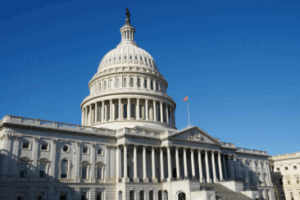New U.S. Trade Deals Impact Florida Agriculture
August 2025
 Since May 2025, the United States has advanced multiple trade agreements and frameworks that directly affect agriculture. Here’s a comprehensive overview with key highlights and links for more details:
Since May 2025, the United States has advanced multiple trade agreements and frameworks that directly affect agriculture. Here’s a comprehensive overview with key highlights and links for more details:
U.S.–Philippines Trade Deal
- Producers benefit from lowered tariffs on U.S. feed inputs like cereals and grains, with Philippine officials maintaining protection for staples such as rice, corn, sugar, chicken, fish, and pork.
Learn more about Philippines trade deal
U.S.–Indonesia Trade Deal
- U.S. soybeans, poultry, dairy, wheat, and other agriculture goods now enter Indonesia tariff-free, with significant non-tariff barrier reductions. Indonesia also committed to substantial agricultural imports like $4.5 billion in U.S. soybeans.
Learn more about Indonesia trade deal
U.S.–Vietnam Trade Deal
- Vietnam facilitated nearly $3 billion in U.S. agricultural import agreements, including corn, wheat, feed ingredients, and timber—all under 0% tariffs. U.S. fruits like California peaches and nectarines also gained new access.
Learn more about Vietnam trade deal
U.S.–United Kingdom Economic Prosperity Deal (May 8)
- Agriculture Impacts:
- Opens up $5 billion in new export opportunities, including significant gains for ethanol (~$700 M) and beef (~$250 M).
- UK will create tariff-free quotas: 13,000 metric tons of U.S. beef and 1.4 billion liters of ethanol.
- Regulatory barriers are being eased for meats, poultry, dairy, rice, specialty crops, and other U.S. ag exports.
Learn more about the United Kingdom Economic Prosperity Deal
U.S.–European Union Framework (July 27)
- Agriculture Impacts:
- Imposes a 15% tariff cap on most EU goods, maintaining zero tariffs for semiconductors, pharmaceuticals, chemicals, and aircraft.
- Includes an initiative to remove non-tariff barriers on U.S. agricultural products—especially pork, dairy, nuts, processed fish, and pet food—and improve sanitary certificate processing.
- The EU also agreed to purchase $750 billion in U.S. energy, including ethanol, over three years—a potential boon for U.S. biofuel exports.
Learn more about the European Union Framework
U.S.-Japan Trade Deal (July 22)
- Sets a 15% reciprocal tariff on Japanese goods, down from 25%.
- Japan commits to $550 billion in U.S. investments.
- Japan expands purchases of U.S. rice, corn, soybeans and sustainable fuels.
Learn more about the Japan trade deal
Why This Matters for Our Members
- Market Expansion: These deals open new and more predictable export opportunities for U.S. (and Florida) producers—especially in feed grains, poultry, dairy, biofuels, and specialty crops.
- Investment Inflows: Agri-sector growth is supported by significant bilateral commitments in energy imports and industrial investment.
- Competitiveness Risks: Exporters must remain aware of rising global competition and ensure that domestic safeguards stay in place where needed.

